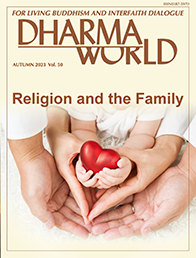Religion and the Family
Throughout the world, and particularly in pluralistic, secularized societies such as the United States, parents across religious traditions are wondering how, or, indeed if, they should pass their faith along to their children (Vern L. Bengston et al., Families and Faith: How Religion Is Passed Down across Generations, Oxford University Press, 2013). In Japan, too, many religious denominations are facing an aging membership, while young people are drifting away from religion in greater and greater numbers. According to the Agency for Cultural Affairs, the Japanese population affiliated with religious institutions decreased by 20 million people in the decade between 2012–21, a nearly 10 percent drop.
Internationally, the right of parents to educate their children in the family’s religious traditions would seem to be recognized by article 26 of the Universal Declaration of Human Rights (“Parents have a prior right to choose the kind of education that shall be given to their children”), adopted by the United Nations General Assembly in 1948. However, article 18 of the Universal Declaration of Human Rights also affirms universal freedom of religion for all human beings, and article 14 of the Convention on the Rights of the Child, adopted by the United Nations General Assembly in 1989, specifically acknowledges the religious freedom of children to practice the religion of their choice.
In Japan, there is increasing concern for children raised by parents with strong religious beliefs who have forced them to practice the same faith. We recognize that religion is a matter of individual choice: No one should force others—not even their own family members—to practice or believe in the tenets of a particular religion. The transmission of faith in the family, therefore, is a complicated matter that begs certain questions:
Is it important for religion to be a mainstay for families in the modern world?
- If so, how should parents’ faith be passed down to their children and grandchildren?
- Is it ultimately a good thing for parents to automatically do so? Can the rights of parents to pass on their religious tradition and children’s freedom of religious choice be reconciled?
- What role do places of worship and the home play in this transmission?
- Can religious sentiment grow without active membership in a religious group?
The Autumn issue will explore these questions and more.






















































































